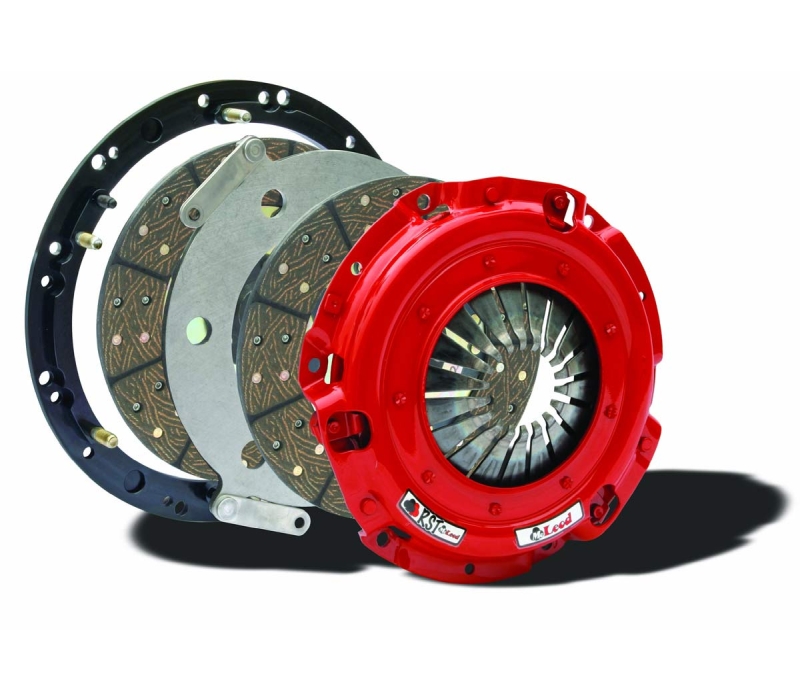Quote:
Originally Posted by undy

I had a Mcleod RXT (dual disc rated @ 1000hp) in my 640hp C6 Z06 and it was a POS. 100% street driving and it started to slip in 20K miles. It was a real pain to launch without a sh!tload of shudder on takeoff.
|
Sometimes in addition to installing correctly, it is important to pay attention to the materials the parts are made of. Cast and forged cranks are both usable in an engine. Sometimes all you need to handle the power and intended usage is a cast crank. At other times the power levels and intended usage call for a forging. You need to know when to use which crank.
Clutches are similar. McLeod makes two versions of their 9" dual disc clutch. One is called the RST and one is called the RXT. McLeod recommends the RST for the high horsepower street use. The RXT, on the other hand, was intended for high horsepower street/strip usage.
While the clutch description could have been a bit more informative, the pics of the discs for two clutches visually tell the story quite well. The RST disc is made with traditional organic facings on the discs which provide a smooth engagement on the street.

The RXT is made with metallic friction pucks on the discs to hold up to the increased heat and abuse typical of track type operation.

Metallic facings are always more aggressive than organic facings. Driving the clutch on the street will raise the temperature of the disc friction material from the slippage associated with a smooth start. After a couple of these events the temperature of the friction material on the metallic puck increases and so to does the puck's co-efficient of friction. The increase in the aggressiveness of the now warmed up friction material provides the unhappy street experience.
If, in your estimation, the smaller 9.69" diameter discs are inadequate for your application you can always buy a pair of 10.5" discs and build your own twin or ask McLeod to do it for you. The DIY approach is decidedly less expensive. Dual 10.5" organic discs will easily handle 1000 ft/lbs of torque in a daily driver type of scenario.
Ed